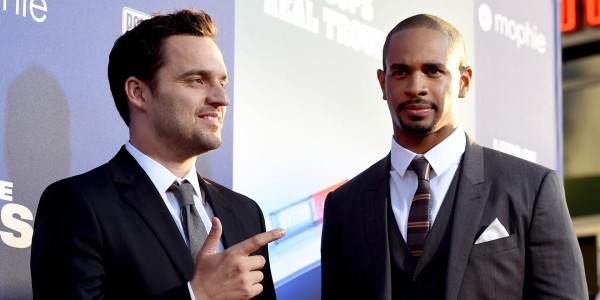HBO unleashed some of the industry’s best documentary filmmakers to take on the subject of addiction, a project born from the frustration of a top HBO executive whose son has struggled with alcohol and cocaine problems.
The film “Addiction,” an umbrella documentary on the subject, debuts on Thursday (9 p.m. EDT). It stitches together stories shot by leading documentarians D.A. Pennebaker, Rory Kennedy, Barbara Kopple, Jon Alpert, Alan and Susan Raymond and others. HBO has lined up 18 films on the topic, most made specially for the series, to air over the weekend on its cable channels.
It all began with the realization by Sheila Nevins of HBO that she understood little about the problems bedeviling her son David.
David, 26 and a location assistant for “The Sopranos,” has been sober for about a year after a decade of substance abuse problems. Nevins, president of HBO Documentary Films, had tried every approach she could think of to help him. Psychiatrists, rehab centers, tough love — she’d been through it all.
“I was doing all these things and it never occurred to me it was a brain disease,” she said.
Every subsequent relapse meant more heartache.
“I didn’t know the relapse rate was between 75 and 85 percent,” she said. “I didn’t really know. I thought relapse was my failure as a parent and his failure as a child.”
If she didn’t understand — working in an industry where “rehab” is hardly a foreign concept — she figured many others didn’t, either.
A powerful forumNevins is in a unique position to spread the word. Her name is frequently heard from the podiums of awards shows, either as she’s thanked for support or picking up her own honor. For her work as a producer, Nevins has received 17 prime-time Emmy Awards, 24 News and Documentary Emmys and 25 Peabody Awards. HBO is one of the premier outlets for documentaries, and she holds the purse strings.
The short films that are a part of “Addictions” include Alpert’s look at a busy Saturday night in a Dallas emergency room; Kennedy and Liz Garbus’ examination of brain imaging; and Pennebaker and Chris Hegedus’ piece on opiate addiction.
Slideshow 26 photos
Celebrity Sightings
“I don’t know about informational programming,” she said. “But I do know documentaries. I thought if there was a way to combine information with the passion of a documentary producer, it would be a great way of getting things across.”
Each of the short pieces included in “Addiction” will be expanded and shown separately through the weekend, along with four other independent documentaries. Also, the network is embarking on a public information campaign with the Robert Wood Johnson Foundation, which has kicked in $1.5 million to the project.
Available online, during free weekend
All of the documentaries will be available to download for free off HBO’s Web site. HBO also timed the series to air on one of its periodic weekends where the service is offered for free to entice new viewers.
The series strongly communicates the message of addiction as a brain disease, which is not entirely accepted by the public or even the medical community, said Nora Volkow, director of the National Institute on Drug Abuse.
“We need to create an empathy so we don’t react with anger and a stigma to the person who is addicted, which doesn’t help anyone — the person or society,” Volkow said.
HBO has done a handful of campaigns like this in the past, on issues like AIDS and cancer, and supported Nevins’ efforts here.
While still exploring the idea, HBO brought groups of people together to talk about addiction to hear their attitudes and experiences. A key moment in moving forward came when Nevins heard the story of one woman and her two children, one who had epilepsy and another who was an addict. The woman cared for the child with epilepsy and kicked the addict out of her house.
Now she has only one child — the addict is dead — and the decision not to seek medical help haunts her to this day.
“It gives dignity to the addict,” Nevins said of the HBO project. “They are responsible for seeking treatment, not responsible for the disease.”
